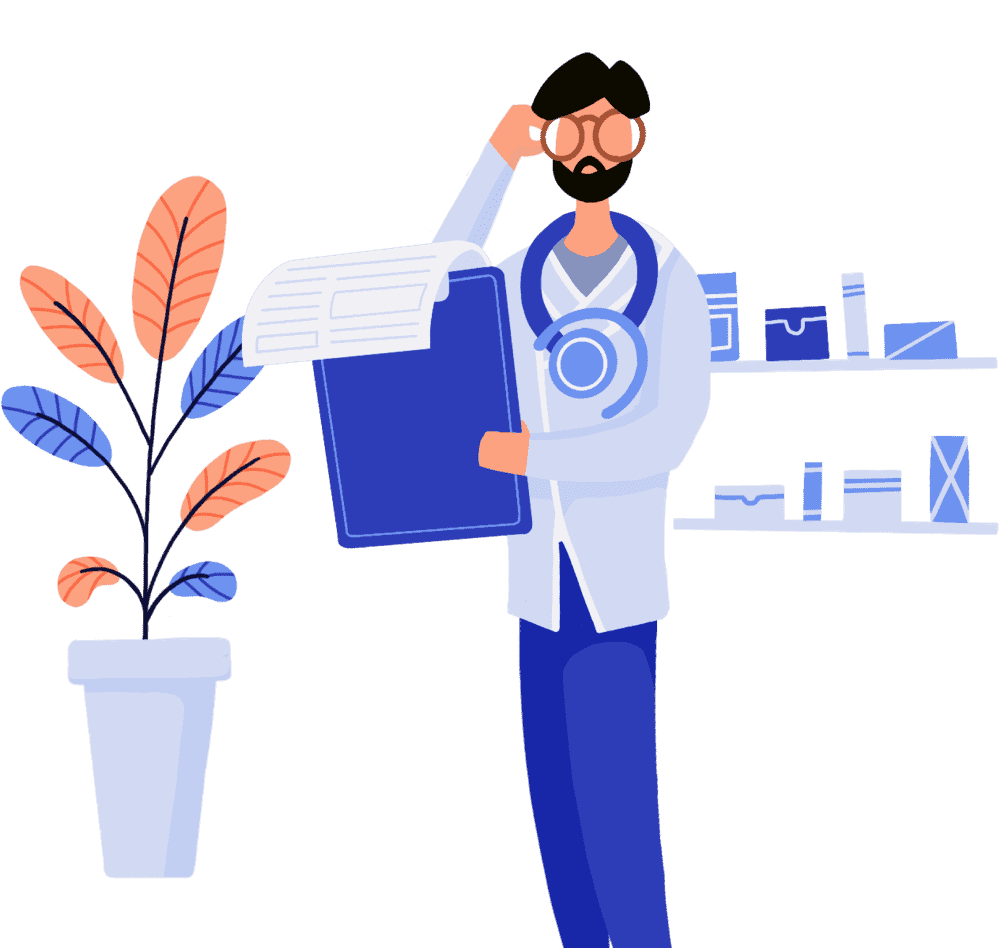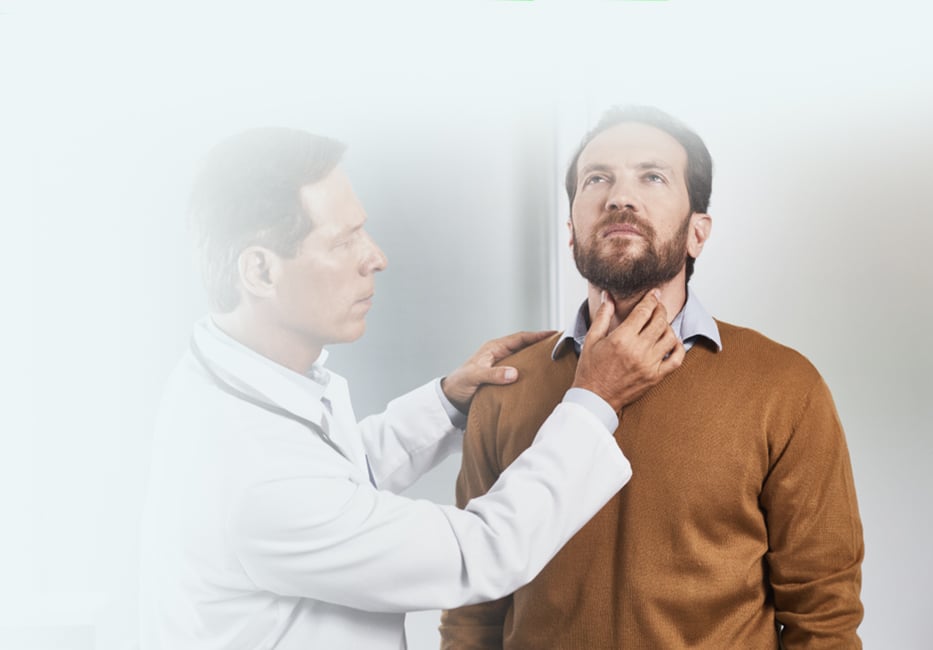Recharge your cells from within and enjoy 20% OFF NAD+ for a limited time only - shop now
- Home
- Chronic Conditions
- Underactive Thyroid Treatment
Underactive Thyroid Treatment
Hypothyroidism (underactive thyroid) is a condition where your thyroid gland doesn’t produce enough hormones. Symptoms are usually slow to develop and can often be confused with the symptoms of other conditions, but common signs are weight gain, tiredness and depression.
There’s no way to prevent an underactive thyroid but you can effectively treat it by taking daily tablets to replace the hormones your body isn’t producing on its own.
More Information
What is hypothyroidism?
Hypothyroidism / Underactive Thyroid
Hypothyroidism is the medical term for an underactive thyroid. The thyroid is a butterfly-shaped gland that sits around your windpipe (or trachea). It produces hormones to control processes such as growth, energy, heart rate and body temperature. However, many people have a thyroid that does not produce hormones at the correct rate.
Some people have an overactive thyroid, which means that they produce more hormones than is necessary, and some people have an underactive thyroid, which means that they don’t produce enough of those hormones.
Because the hormones that your thyroid gland produces are so closely linked to energy and growth, have an underactive thyroid can lead to symptoms such as weight gain, tiredness and depression or a low mood.
Diagnosing hypothyroidism can be difficult because the symptoms can be slow to appear and they are also common symptoms of a number of other ailments. However, it’s important to diagnose an underactive thyroid as soon as possible, as it can lead to high cholesterol and clogging of the arteries (because of the effect that the thyroid gland as on the way your body processes fat).
Left untreated, this can then potentially lead to angina and heart attack, so it’s important to test for hypothyroidism if you are showing symptoms.
What causes hypothyroidism?
Hypothyroidism is a condition where the thyroid gland does not produce enough hormones and this is often due to the thyroid being damaged. The damage can be caused by a number of things, such as cancer, medication or your own immune system.
Your immune system is highly efficient at protecting your body from harm, and attacks foreign objects that threaten damage. However, there are a number of conditions where the immune system mistakenly identifies your own cells as foreign, harm-causing entities and attacks those instead.
These conditions are known as autoimmune disease, and a number of these kinds of diseases can lead to hypothyroidism. Hashimoto’s disease is the most common kind of autoimmune reaction that can cause an underactive thyroid.
Hypothyroidism can also be caused by any medications or surgeries you’ve previously had that affect the thyroid gland. If you previously suffered from an overactive thyroid and had a treatment with side effects or complications, you may then end up with an underactive thyroid.
How can I treat hypothyroidism?
Underactive Thyroid Medication
Because hypothyroidism is a condition where the thyroid gland doesn’t produce enough hormones, the treatment route is all about replenishing these levels.
Once you have had a blood test to confirm a diagnosis of hypothyroidism, you may start treatment with levothyroxine. This is a synthetic hormone medication that boosts your levels and treats the symptoms of an underactive thyroid.
Everyone requires a slightly different dose of levothyroxine, so regular blood tests are needed when you first commence treatment. Once the correct dose is reached, the blood tests drop to an annual rate to make sure your hormone levels continue to be monitored.
Medication delivered the next day from UK pharmacies



Choose the right treatment
From the comfort of your own home or out on the go, choose the treatment you require from our extensive range.
Complete an online consultation
A vital part of our process, your online consultation will be similar questions to that of a GP. Quick and easy, we guarantee privacy and confidentiality.
Delivered discreetly
One of over 100 of our partner regulated UK pharmacies will dispense and ship the treatment to you in discreet packaging.
Rated out of 5 on 
I always receive great service from uk meds, as mentioned before the ordering process is easy and I receive the item in a few days.
UK meds are reliable and trustworthy. Meds always arrive on time and always what is requested would recommend others to use this great company. Service is spot on. Thank you.
Excellent service.
Easy consultation Couldn't fault service
Rated 4.6 out of 5 based on 6913 reviews
Here to help you
Our Customer Service is available Monday to Friday 9am - 5pm. If you need urgent assistance, do not use this service. Call 111, or in an emergency call 999. Visit our help section


